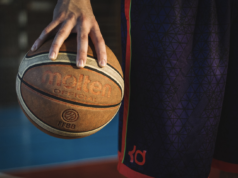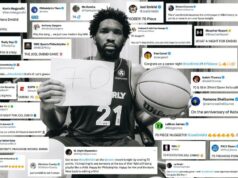The San Antonio Spurs begin their 2017 playoff campaign against the Memphis Grizzlies this weekend. Defense defined the two teams’ four regular season match-ups, and will likely be the defining theme of their imminent playoff series as well. This season, the Spurs scored 98.2 points per 100 possessions against the Grizzlies, over 10 points less than their season average. Even in the games the Spurs won, the Grizzlies’ defense gave them fits.
While it is certainly not the most important aspect to the Grizzlies’ defense, pace provides a good starting point with which to examine it. The pace at which the Grizzlies play helps provide a lens into what makes the other aspects of their defense so effective. The Grizzlies’ pace is incredibly slow at 94.76 possessions per game, ranking them 28th in the league. “Grit and grind” is not only the team’s unifying mantra, but also the underlying philosophy on how they play the game. This becomes more apparent when comparing the pace at which they play in wins versus the pace at which they play in losses. Unlike the Spurs, whose pace remains almost identical in wins and losses, the Grizzlies play 1.3 possessions less in wins. Throughout the regular season, 15 teams averaged a pace of 98.5 possessions per game or higher, but against the Grizzles, only two teams averaged a pace above that mark, and none averaged above 100.
In the four regular season games, the Grizzlies absolutely imposed this pace on the Spurs. The two teams averaged a combined 90.13 possessions per game. If a team were to average that pace, it would be the lowest pace in the league this season by a healthy margin. The Spurs play slow by design too, without a doubt, but the pace they averaged against the Grizzlies was lower than the pace they averaged against any other opponent this season by over two possessions.
In their regular season match-ups, the Spurs averaged only 78.5 field goal attempts, the third lowest they averaged against any opponent this season. Not only did the Spurs struggle to get shots off against the Grizzlies, but they struggled to make them too. The Spurs on average made only 43% of their field goal attempts against the Grizzlies this season, the seventh lowest ranking against any opponent.
These numbers encapsulate what makes the Grizzlies defense effective at it’s core. They make opponents uncomfortable. They slow the game down to a crawl and then make scoring difficult. For most opponents, nothing comes easy on the offensive end when playing the Grizzlies, and this has especially been true for the Spurs this season.
Interestingly, there are things that the Grizzlies do and don’t do that you wouldn’t expect from a high-level defensive team. They allow the sixth most three point attempts per 100 possessions at 29.9. The Grizzlies rank 7th in defensive rebounds per 100 possessions at 35.2, but the difference between them and the 5th ranked team is greater than the difference between them and the 17th ranked team. Finally, the Grizzlies rank second in opponent free throw attempts per 100 possessions with 28.7.
Fouling as often as they do is surprising for a team with a top-10 defensive rating. In an era where many teams are built around players who can create space with 3-pointers, the Grizzlies allow more attempts from 3 than one might assume. Despite all this, they remain a good, if not great, defensive team. They actively force turnovers and hold their opponents to the second lowest field goal percentage in the league on average. They also hold their opponents to fewer field goal makes per 100 possession than any team in the league.
Despite their ability to disrupt the Spurs’ game plan, the Spurs still have offensive weapons that can gain them an advantage in a seven game series. During the regular season, the Grizzlies often had Tony Allen defending Kawhi Leonard. Allen is one of the defensive play-makers for the Grizzlies and he often sets the tone on that end of the court; however, on a team that draws a relatively large amount of fouls, Allen commits the fourth most on the team per game. One of the many facets that Leonard has added to his game is the knack for drawing contact and getting to the line. This skill may prove to be vital for the Spurs in this series.
Generally in the playoffs, teams will shorten their rotation. However, for this round in particular, it may benefit the Spurs to continue playing with a rotation that is 10 to 12 players deep. There are several reasons for this. First, the Spurs’ bench plays at a generally faster pace than the starters do, which may help counter-act the slow pace that the Grizzlies will surely attempt to play throughout the series. As stated above, the Grizzlies allow teams to shoot 3’s, so a lineup of Leonard + four other capable three point shooters may be effective if the Grizzlies start to double Leonard as the series goes on. Pau Gasol, Patty Mills, and Manu Ginobili all seem perfect for this role and LaMarcus Aldridge could certainly round out this offensive-minded lineup well. The Spurs will certainly need to figure out offensive lineups that can work against the Grizzlies. Being unable to solve the questions that the Grizzlies’ defense presents early in the series could be costly.
All stats from nba.com/stats and basketball-reference.com.






